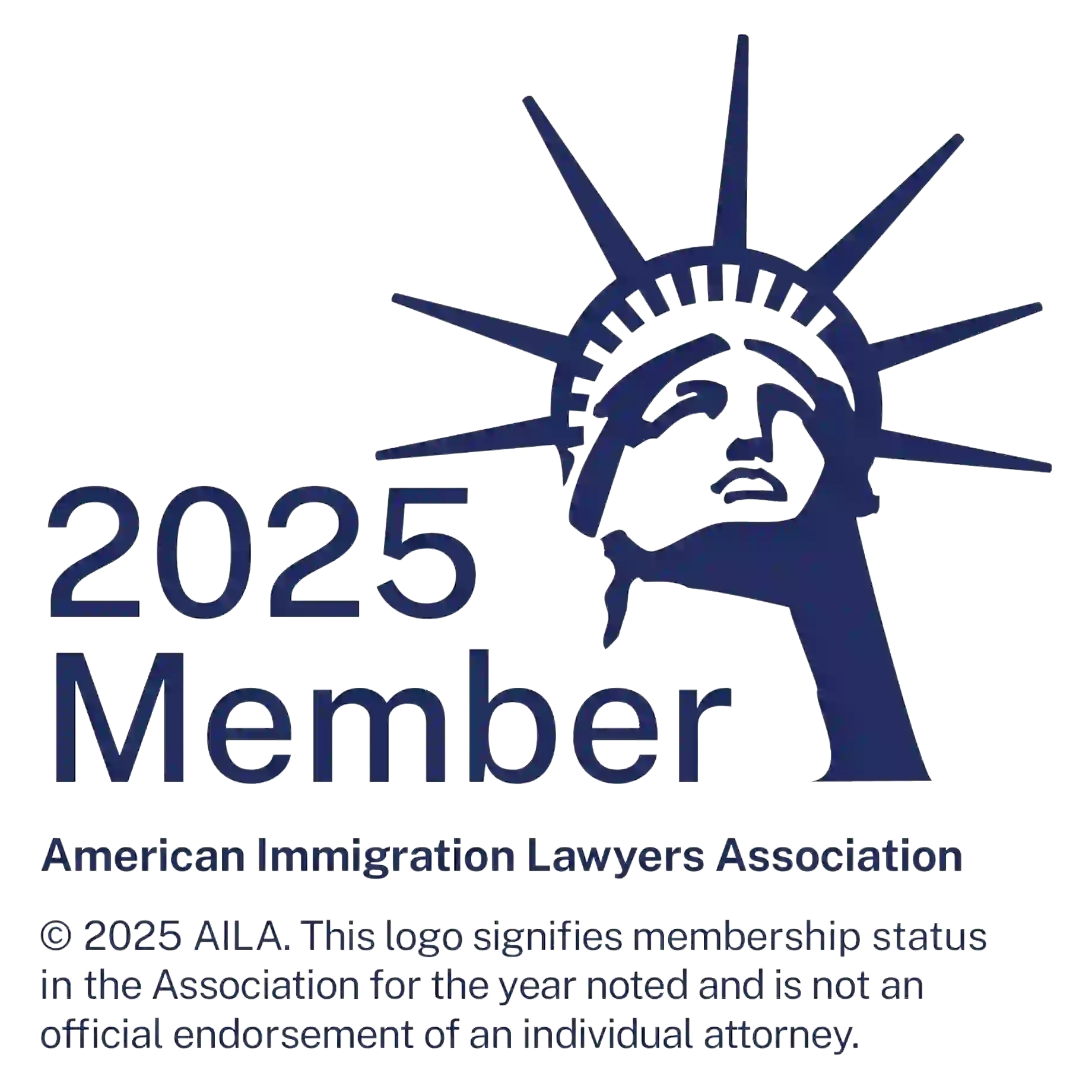Deferred Action for Childhood Arrivals

Deferred Action for Childhood Arrivals
Deferred Action for Childhood Arrivals (DACA) is a policy that offers a temporary reprieve from deportation for undocumented immigrants who were brought to the U.S. as children. Established in 2012 under the Obama administration, DACA allows qualifying individuals, often referred to as "Dreamers," to live and work in the U.S. legally for a renewable two-year period. Although DACA does not provide a pathway to permanent residency or citizenship, it provides vital protection and opportunities for those who might otherwise face deportation.
Supporting Your Family’s Future
Take the First Step –
Complete the Form Below
All consultations are paid consultations. For more information regarding your immigration matter, please call us at 908-888-0029.
For general inquiry please fill out the form below. Thank you
What Brings You Here? Select a Focus
What You Need To Know About Deferred Action for Childhood Arrivals
What is DACA?
Deferred Action for Childhood Arrivals (DACA) is a policy that offers a temporary reprieve from deportation for undocumented immigrants who were brought to the U.S. as children. Established in 2012 under the Obama administration, DACA allows qualifying individuals, often referred to as "Dreamers," to live and work in the U.S. legally for a renewable two-year period. Although DACA does not provide a pathway to permanent residency or citizenship, it provides vital protection and opportunities for those who might otherwise face deportation.
DACA recipients are granted “deferred action,” meaning they are protected from removal from the U.S. and are authorized to work legally. This allows recipients to pursue employment, attend school, and contribute to the U.S. economy. While it is not a permanent solution, DACA helps many undocumented young people build a stable future while Congress continues to debate comprehensive immigration reform.

Eligibility for DACA
To qualify for DACA, applicants must meet specific criteria set by U.S. Citizenship and Immigration Services (USCIS). These criteria include both age-based and residency requirements, along with a clean criminal record. Here's a breakdown of the main eligibility requirements:
Age Requirement: Applicants must have been under the age of 31 as of June 15, 2012, and must have arrived in the U.S. before the age of 16. This allows DACA to apply to those who were children when they arrived in the U.S. and who grew up in the country.
Continuous Residence: Applicants must have continuously resided in the U.S. since June 15, 2007, and were present in the country on June 15, 2012, the date the policy was announced.
Criminal History: Applicants must not have been convicted of any felony, significant misdemeanor, or three or more misdemeanors. A clean criminal history is a crucial part of the DACA application process.
Educational or Military Status: Applicants must currently be enrolled in school, have graduated from high school or obtained a GED, or be an honorably discharged U.S. military veteran or active duty member.
No Immigration Violations: Applicants must prove that they were physically present in the U.S. without lawful status as of June 15, 2012. Additionally, they should not have had their status revoked or been convicted of immigration violations.
The DACA Application Process
The process for applying for DACA is straightforward, but it requires careful attention to detail to ensure a successful application. Below are the key steps involved in the DACA application process:
Gather Required Documentation: The first step in applying for DACA is to gather the necessary documentation. This includes:
Proof of identity, such as a birth certificate or passport
Proof of continuous residence in the U.S. since June 15, 2007, such as school records, tax documents, or medical records
Proof of current enrollment in school or a diploma/GED, or military service records
A clean criminal record, with relevant documents if there have been any legal issues
Complete Form I-821D: The primary form required for DACA is Form I-821D (Consideration of Deferred Action for Childhood Arrivals). Applicants must carefully complete this form, providing information about their personal history, education, and immigration status. Along with this form, applicants need to submit Form I-765 (Application for Employment Authorization), which allows them to work legally in the U.S. if approved.
Pay Fees: There is a fee associated with the DACA application, which typically includes the cost of the form submission and biometrics (fingerprints and photographs). As of 2024, the fee is generally around $495, but applicants should check for updates on the USCIS website. Fee waivers may be available in certain circumstances.
Biometric Appointment: After submitting the application, USCIS will schedule a biometric appointment. During this appointment, applicants will be fingerprinted and photographed to conduct background checks and verify their identity. These biometric details are essential to ensure applicants do not have any criminal issues that would disqualify them from the program.
Await Approval: Once the biometric appointment is completed, USCIS will process the application. If everything is in order and the applicant meets all the eligibility requirements, USCIS will approve the application and grant DACA status for a two-year period. The recipient will also receive work authorization.
Renewal: DACA is renewable every two years. However, applicants must submit a renewal application to USCIS before their current DACA status expires. It's important to apply for renewal well in advance of the expiration date to avoid any lapse in status.
Documentation Needed for DACA Application
The following documents are typically required when applying for DACA:
Form I-821D: The application form for Deferred Action for Childhood Arrivals.
Form I-765: The form for Employment Authorization, allowing applicants to work while under DACA.
Proof of Identity: A copy of a birth certificate, passport, or other official identification documents.
Proof of Continuous Residence: Evidence of continuous residence in the U.S. since June 15, 2007, such as tax returns, school records, or utility bills.
Educational Documents: School transcripts, diplomas, or GED certificates to show current enrollment or completion of educational requirements.
Criminal Background Records: If applicable, court records, police reports, or other documents related to any criminal history.
Proof of Military Service: If the applicant has served in the U.S. military, discharge papers or service records must be provided.
Challenges with the DACA Process and How Gorostiaga Law Firm Can Help
Despite the benefits, the DACA application process can present a number of challenges. The key challenges include:
Complicated Paperwork: Completing the DACA forms and gathering the necessary documentation can be complex, especially for applicants who may not have kept detailed records of their past residence or educational history. At Gorostiaga Law Firm, we help clients organize and prepare the required documents, ensuring they meet all the necessary criteria.
Criminal History Complications: A past criminal history, even if minor, can disqualify applicants from DACA. If an applicant has any criminal history, Gorostiaga Law Firm can assist in assessing the impact of these issues and advise on possible options, including the potential for legal waivers or expungement of records.
Legal Uncertainty: Since DACA is an executive action, it has faced legal challenges over the years, leading to uncertainty about its future. Gorostiaga Law Firm keeps clients informed about any legal changes that may affect their status and can help with legal advocacy in case of a policy shift.
Limited Path to Permanent Status: DACA does not provide a direct route to permanent residency or citizenship, which can be a source of frustration for many applicants. While DACA recipients are not eligible for permanent residency on the basis of DACA alone, Gorostiaga Law Firm can help explore other legal pathways, such as family-based immigration or employment-based visas, to work toward a more permanent status.
Application Denials: In some cases, DACA applications may be denied. If an applicant's DACA application is rejected, Gorostiaga Law Firm can assist in understanding the reason for the denial and help clients file appeals or reapply if possible.
Contact an Immigration Lawyer
With Gorostiaga Law Firm by your side, you can navigate the complexities of the DACA process with confidence. Our experienced attorneys are committed to providing the best possible legal assistance, ensuring that you have the support you need to achieve a successful outcome.Both Citizenship and Naturalization and DACA are key aspects of U.S. immigration law, and understanding the details of each process can help guide individuals through what can be a confusing and complex journey.
At Gorostiaga Law Firm, we pride ourselves on providing clear, detailed legal counsel for individuals seeking to secure their future in the U.S., whether through citizenship, DACA, or other immigration pathways. Let us help you navigate the system with expertise and compassion, ensuring the best possible outcome for you and your family.
Recognized for Excellence in Immigration Law
Gorostiaga Law Firm is recognized for its dedication and excellence in immigration law. Its founder, Virginia Gorostiaga, has earned a place among the Top 10 Immigration Law Trial Lawyers and is a proud member of the American Immigration Lawyers Association (AILA), reflecting the firm's high standards and commitment to the field
Supporting Children’s Rights Through KIND
At Gorostiaga Law Firm, we believe in standing up for the most vulnerable—both in and out of the courtroom. As part of that mission, the firm proudly supports Kids in Need of Defense (KIND), a nonprofit organization dedicated to protecting the rights of unaccompanied and separated children.
KIND provides trauma-informed legal and social support to children navigating the immigration system alone. The firm's recent donation, driven by its commitment to social justice, helps further KIND's vital work, which includes direct legal assistance, advocacy for stronger child protections, and a commitment to compassionate, child-centered care
Solutions Built Around Your Needs
From complex cases to personal guidance, Gorostiaga Law Firm is your trusted partner in creating a secure future.
Testimonials
"My husband and I had a great experience with Virginia and her team. Members of the team are fluent in spanish- As a spanish speaking person I really appreciate how easy that made it to understand and follow the process even better. Anytime we had a question or concern they were very easy to reach and always made us feel very comfortable. 100% would recommend to work with them, you won’t regret it!"
- Maria Jose Meneses Meza

"I would recommend all my friends and family to Gorostiaga Law. Virginia is effortless at what she does and genuine lawyer who does things the right way from day one. Thank you for all your time you put on my case Virginia. Take care and hopefully I come back to seek for your legal advise soon."
- Rahin Ahmed

"Ms Gorostiaga is a conscientious dedicated judicious attorney. Ms Virginia Gorostiaga treats each of her clients with a level of respect and compassion that makes you feel valued and understood and lets you know that you will be treated with the utmost professionalism and dedication. I hope one day that Ms Gorostiaga will be more than my attorney, she will be a trusted faithful lifelong friend! I am trusting her with my life and my legacy"
- Edel Quinn

Our Dedicated Immigration Services in New Jersey
At Gorostiaga Law, we are dedicated to guiding you through the complexities of immigration law with compassion and expertise.
Our services include:
Reuniting families is at the heart of what we do. We assist with family petitions, fiancé visas, and other processes to bring your loved ones closer, providing compassionate guidance every step of the way.
Our firm supports businesses and professionals navigating the complexities of immigration law. We help secure work visas and employment-based green cards, facilitating growth and long-term success.
Facing removal proceedings can be daunting, but our experienced team is here to protect your rights and build a strong defense to help you remain in the U.S.
Citizenship and Naturalization
From permanent residency to citizenship, we simplify the naturalization process and ensure you meet all requirements for becoming a U.S. citizen.
Deferred Action for Childhood Arrivals (DACA)
We assist eligible individuals brought to the U.S. as children with applying for or renewing their DACA status, helping secure their futures and remain lawfully in the country.
For those seeking safety from persecution, we provide comprehensive support to apply for asylum or refugee status in the United States, offering experienced, client-focused representation.
Frequently Asked Questions
What services does Gorostiaga Law provide?
Gorostiaga Law specializes in immigration law, offering services such as family immigration, business immigration, naturalization. Our dedicated team provides personalized support to navigate the complexities of the immigration process. We strive to ensure our clients achieve their legal goals efficiently and effectively.
How can I schedule a consultation?
You can schedule a consultation by visiting our website and filling out the contact form. Alternatively, you can call our office directly to speak with a member of our team. We are here to assist you in setting up a convenient appointment.
What should I bring to my consultation?
During your consultation, please bring relevant documents such as your passport, visa, and any immigration paperwork you have. This information will help us better understand your case and provide tailored advice. If applicable, bring any additional documentation related to your family or business immigration needs.
How long does the immigration process take?
The duration of the immigration process varies based on the specific type of application and the current workload of immigration authorities. Our team will provide you with an estimated timeline during your consultation, considering your unique circumstances. We aim to keep you informed and updated throughout the entire process.
Do you offer services in multiple languages?
Yes, our team at Gorostiaga Law is multilingual and can assist clients in English, Spanish, Portuguese, Hindi, and Gujarati. We believe that clear communication is crucial for a successful legal experience. Our goal is to ensure that all clients feel comfortable and fully understand the legal process.
How do I know if I have a civil case worth pursuing?
If you’ve experienced financial loss, property damage, a contract breach, or reputational harm, it may be worth pursuing legal action. We offer consultations to help you evaluate the merits of your case and your best path forward.





